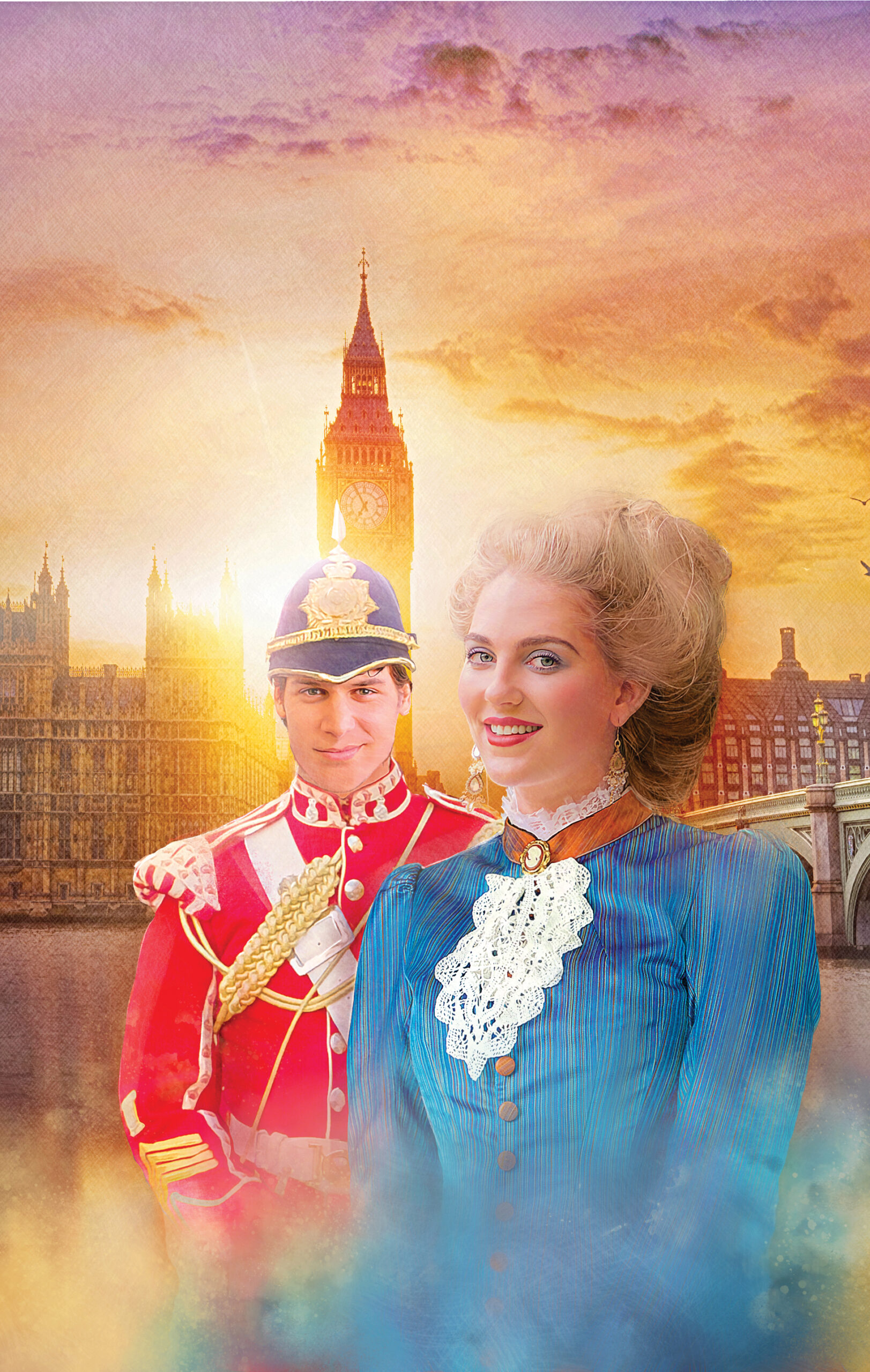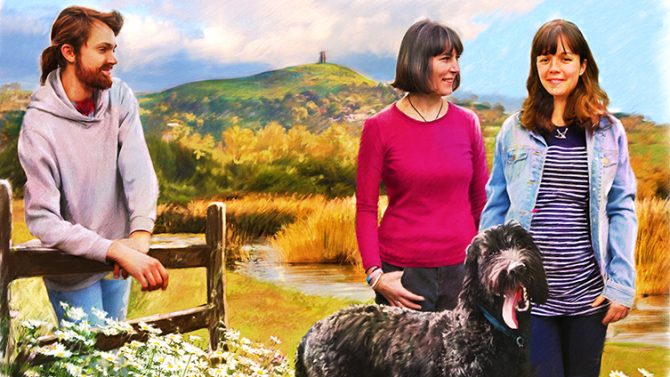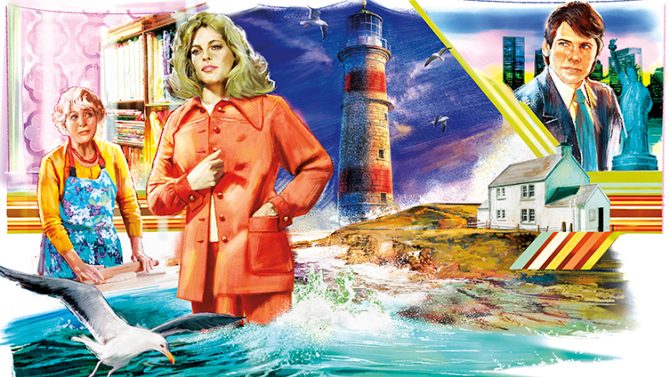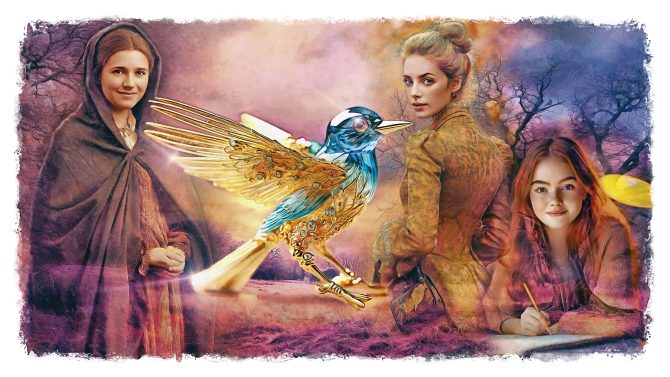The Schoolmaster’s Daughter — Episode 01
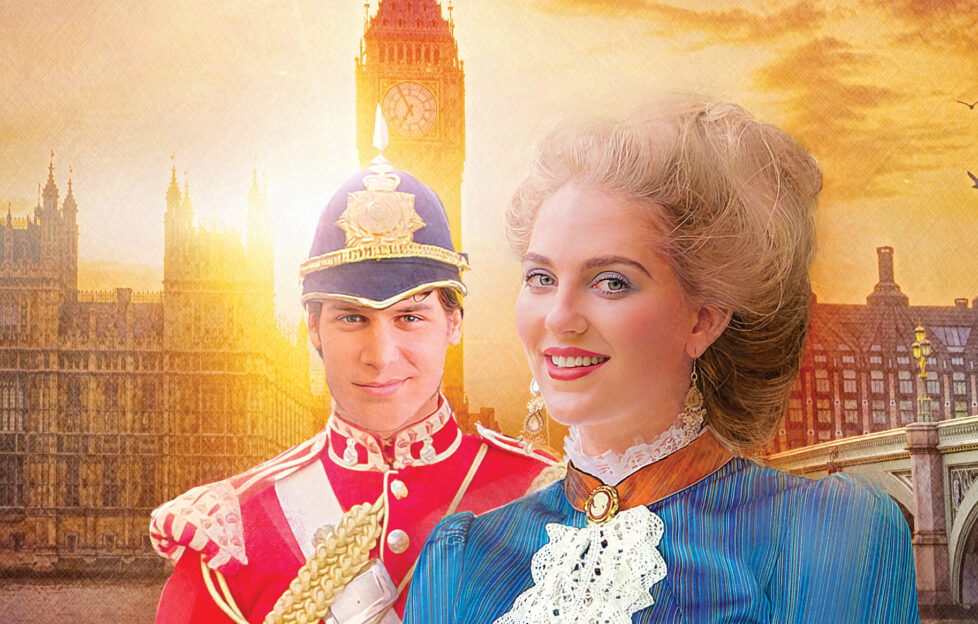
The Schoolmaster's Daughter by Suzan Lindsay Randle
- 1. The Schoolmaster’s Daughter — Episode 01
- 2. The Schoolmaster’s Daughter — Episode 02
- 3. The Schoolmaster’s Daughter — Episode 03
- 4. The Schoolmaster’s Daughter — Episode 04
THE shelves of the twin bay windows either side of the bakery door were stacked with tempting treats. There were loaves, round rolls and colourful sugar-coated cakes.
Soon it would be Easter and time for hot cross buns, Louisa thought, smiling to herself. Her favourite, though, was gingerbread, warm from the oven.
Reminding herself that she had a more important purpose in visiting the small shops along Market Street this morning, Louisa checked that her hat was on straight.
The reflection of her golden hair glinted in the glass as she pushed a few stray strands behind her ears. She hoped that she looked more grown up and confident than she felt and that the women she would be talking to would take her seriously.
She didn’t want to let the committee down. Or Queen Victoria, come to that. She took a deep breath and composed herself.
There was a sudden, loud clattering of hooves and wheels on the cobblestones behind her. Turning in alarm, Louisa saw a young man in jacket and cloth cap drive a pony and four-wheeled cart down the alley that ran alongside the shop to the stable at the back.
She just had time to read the name W. Knibb, Baker and Confectioner, painted on the side of the cart before it disappeared from view. One of the rear doors was swinging open. The driver must have been in too much of a hurry to close them properly. She hoped the empty baskets inside signified that business was good and the baker’s wife would be favourable to her request.
As she pushed open the shop door, along with the sweetness of the confectionery displayed on the counter Louisa thought she could detect the faint smell of burning. Mrs Knibb was busy with a customer, so Louisa waited near the exit that led to the living quarters over the shop.
The door was slightly ajar. From the bakehouse at the back came the sound of the baker’s voice and he was definitely not in a good mood.
“George Jevcott! This cake is ruined! Why weren’t you watching it?” Mr Knibb roared. “You sent me out with the cart, sir,” George replied in a steady tone.
“Enough of your insolence! You must have been loitering, you were out for so long. And it wouldn’t have cooked so quickly if you’d weighed the mixings correctly.”
“I did weigh out the flour and the lard, sir,” George said in the same patient manner. “I also cleaned the currants, but I didn’t do the mixing or put the cake in the oven. Perhaps the oven was too hot.”
“Silence! Your father will hear about this. Now, take these through to the shop.”
Carrying a tray of freshly baked scones, George was startled to see Louisa.
“Pardon me, miss,” he said quietly.
He’d swapped his cap for a baker’s hat which sat on his dark curly hair.
As Louisa stepped aside to let him pass, George quickly looked down, avoiding her gaze, but not before she had noticed his eyes, shining and brown like melted chocolate.
His shirt sleeves were rolled up, revealing his strong arms. Above his white apron, his face was flushed, either from the heat of the oven or from embarrassment.
Whichever it was, Louisa’s heart went out to him. She didn’t ever like to see people treated unfairly.
Just then, the customer left and Mrs Knibb turned her attention to Louisa.
Trying to ignore George, now unloading the contents of the tray, Louisa smiled brightly at the baker’s wife.
“Good morning,” she said. “I’m here on behalf of the Townswomen’s Committee.”
* * * *
When she’d concluded her business at the bakery, Louisa went next door to H.A. Hawkins, Grocer, Provisions and General Store.
Mrs Hawkins wasn’t at home but a young woman was serving in the shop.
“This is for you just as much as for your mistress,” Louisa said, holding out a printed leaflet. “All women and girls in the United Kingdom are asked to contribute to a fund to pay for a new statue to honour our Queen and mark her Golden Jubilee. You’ll see it’s for all ages and classes. Contributions can be any amount from one penny to one pound and the names of everyone who contributes will be given to the Queen herself. I’ll leave this leaflet with you. My sister and I will come along next week to collect the contributions from this street.”
The grocer had been listening from the other side of the shop.
“I’m sure my wife will be delighted to contribute, Miss Marchington,” Mr Hawkins said. “Did you have any luck with Mrs Knibb? I heard raised voices just now. I hope no-one was being unkind to you.”
“Oh, no,” Louisa replied. “Mr Knibb was concerned about something that had occurred in the bakehouse.” Mr Hawkins tutted.
“Having another go at George Jevcott, I expect. He really expects too much of that young man. I’ve seen George arriving for work at six o’clock in the morning and he’s still there at ten o’clock at night. As far as I can see he’s a good worker. If he’s not fetching and carrying, he’s grooming the pony. Loves that animal, he does.”
He picked up an apple and polished it on his waistcoat.
“Now, Mrs Knibb, that’s who old Knibb should be concerned about. If you ask me, she’s a bit too friendly with that other baker they’ve recently taken on.”
Mr Hawkins stopped himself from going on and cleared his throat.
“My apologies, Miss Marchington. I shouldn’t be passing on tittle-tattle to you. Thank you for calling – please give my regards to your father.”
